northkorea
Latest

Japan's latest GPS satellite will guide self-driving cars
Japan just fulfilled a key part of its space ambitions -- and it'll have important ramifications for everything from self-driving cars to self-defense. The country has launched its fourth Michibiki satellite, which expands a "quasi-zenith" system designed to provide greater access to GPS in urban 'canyons' where buildings tend to block signals from lower-orbit satellites. Needless to say, that's vital for autonomous vehicles that need GPS to get their bearings in a country dominated by sprawling cities.

North Korea now has a second internet link through Russia
North Korea had previously gotten its internet through a hardwire to China, but that's no longer the case: Now, it has a second link to the world wide web through Russia cybersecurity firm FireEye told Bloomberg. This confirms an initial report by site 38 North that claimed the secondary connection went active on Sunday.

US pressured North Korea by overwhelming hackers with data traffic
The US is no stranger to hacking North Korea, but it's usually in a bid to directly thwart the country's military ambitions. Now, however, those attacks are being used as a diplomatic strategy. The Washington Post has learned that President Trump ordered a broad pressure campaign against North Korea that led to the US conducting a denial of service attack against North Korea's spying office, the Reconnaissance General Bureau. The move flooded the RGB's servers with traffic that effectively strangled their internet access, including the Bureau 121 group responsible for the North's hacking campaigns. And while it clearly didn't change Kim Jong Un's mind, it does appear to have had a practical effect.
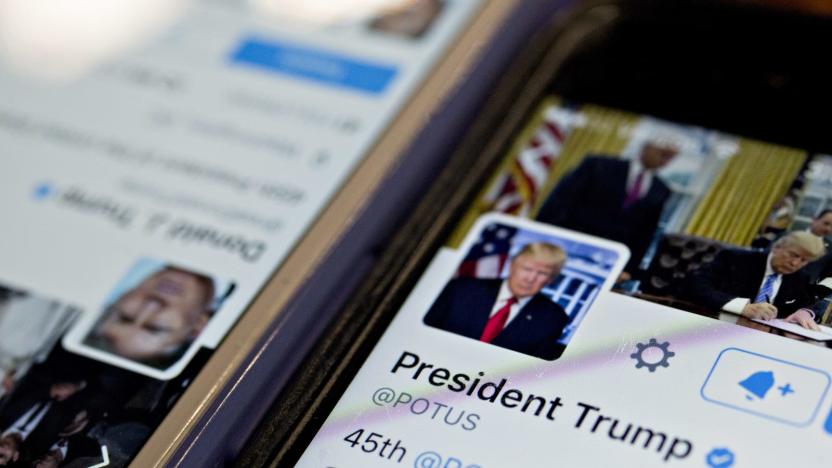
Twitter tries to explain why Trump's posts aren't like others
So if Twitter's rules ban "violent threats," then surely a tweet indicating that a country "won't be around much longer" from a user with the ability to make that happen would be deletion-worthy, right? As the company was forced to explain today, not quite. Donald Trump's tweet about North Korea may have riled that nation's representatives, but according to a thread from its global public policy team, "newsworthiness" and whether a Tweet is of public interest" comes into play. It says it will update its public-facing rules to make that clear, but clearly it has no interest in trying to place a muzzle on the accounts of any particular political leader -- no matter what he tweets next. Twitter Rules: Any accounts and related accounts engaging in the activities specified below may be temporarily locked and/or subject to permanent suspension. Violent threats (direct or indirect): You may not make threats of violence or promote violence, including threatening or promoting terrorism.

North Korea claims Trump declared war with a tweet
Can you start a war with a tweet? Probably not, but that isn't stopping North Korea from claiming otherwise. Foreign Minister Ri Yong Ho tells the media that President Trump "declared war" on his country with a Twitter post suggesting North Korea wouldn't "be around much longer" if Ri's thoughts echoed those of regime leader Kim Jong Un. That language gives North Korea "every right" to defend itself, Ri argues, including the right to shoot down bombers flying outside of its airspace. In theory, that means attacking if the US repeats the B-1B flight it performed as a show of force on September 23rd.

After Math: Reach out and touch someone
It's been a telling week for communications. Chinese scientists bounced quantum entangled photons into space and back, McDonald's recruited new hires through Snapchat, and it would appear that North Korea has had its fingers in everybody's cyber-pies since 2009. Numbers, because how how else are you going to work the keypad?

US: North Korea's been hacking everyone since 2009
US authorities believe the North Korean government has been using an army of hackers called "Hidden Cobra" to deploy cyber attacks over the past eight years. That's according to the Technical Alert formally issued by the Homeland Security and the FBI, which contains the details and tools NK's cyber army has been using to infiltrate the media, financial, aerospace and critical infrastructure sectors in the US and around the globe. The government agencies issued the alert after tracing the IP addresses of a malware variant used to manage NK's DDoS attacks to North Korean computers. While other players can spoof their IPs to frame NK, the US is encouraging cyber analysts to be on the lookout, warning them that the Asian country will continue to use cyber operations to advance its government's military and strategic objectives.

North Korea reinvents the 'iPad'
North Korea has a state-controlled economy, and it produces devices such as tablets and computers for its citizens who can afford them. This isn't really news. But Myohyang IT, a state-owned North Korean tech company, just announced a new tablet that will raise some eyebrows: It's called . . . the iPad. That's right. While North Korea hasn't exactly been respectful of intellectual property and trademarks in the past, this blatant violation sets a new bar for the military dictatorship. It's pretty safe to say that Apple is likely not happy about this development.
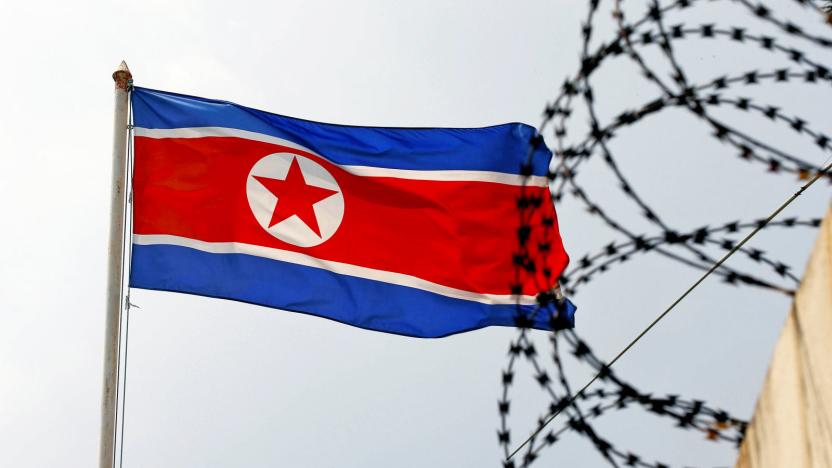
'WannaCry' ransomware showed traces of North Korean code
For all the damage the "WannaCry" ransomware has done, there's still one looming, unanswered question: who's behind it? At last, there might be a clue. Google researcher Neel Mehta has noticed that an early version of WannaCry's code shares similarities with a February 2015 sample from the Lazarus Group, a North Korea-linked outfit blamed for both the Sony Pictures hack as well as the Bangladesh Bank heist. The code changed between then and now, but it at least raises the possibility that North Korea was involved.
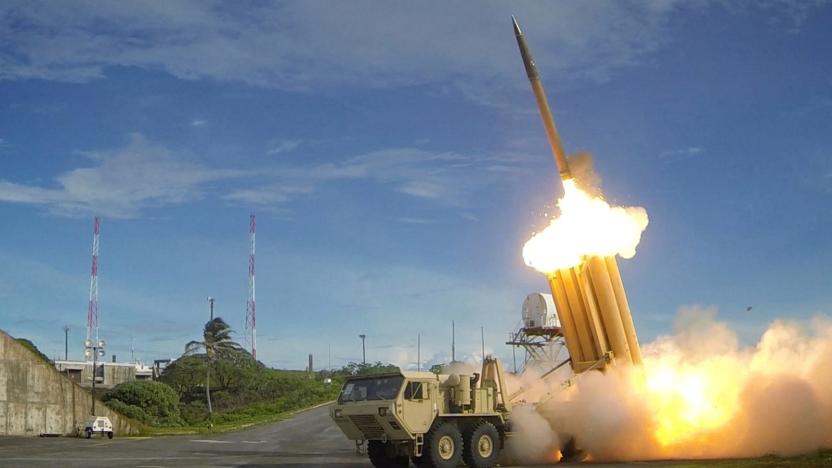
China bans new South Korean games over a political crisis
China is rather irate that South Korea is starting to install the US' THAAD (Terminal High Altitude Area Defense) missile defense system to protect against North Korean threats. To that end, it's punishing the South with retaliatory policies... including one that targets video games. Chinese officials have frozen new licenses for games made in South Korea, preventing any more titles from launching in the country.
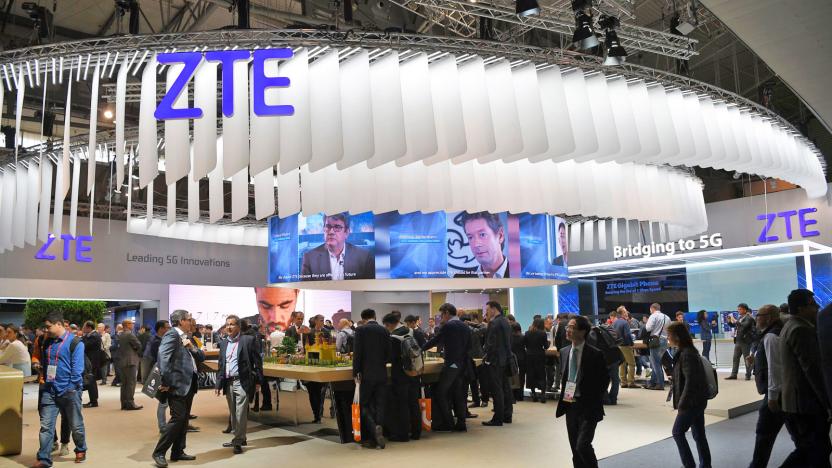
ZTE will pay $1.19 billion for violating US trade sanctions
ZTE is still feeling the pain from its alleged violation of US trade sanctions against Iran and North Korea. The Chinese tech giant has reached an agreement with the Commerce Department to both plead guilty to violation charges and pay a total of $1.19 billion ($892 million in the Iran case) as a penalty. That's a stiff cost, but ZTE didn't have much choice. The US' sanctions against the company, suspended while the two sides negotiated a deal, would have crippled its business by largely denying access to crucial American parts like Qualcomm's mobile processors.

US hopes cyberattacks will stall North Korea's missile program
The US might not have had much success with cyberattacks against North Korea's nuclear program, but that apparently hasn't stopped officials from further efforts... not that they're having much success. The New York Times has learned that then-President Obama ordered escalated cyberwarfare against North Korea in 2014 a bid to thwart its plans for intercontinental ballistic missiles. However, it's not clear that this strategy has worked -- and there may be problems if it does.

Trump didn't restrict public phone use near classified info
Hillary Clinton caught plenty of flak for the security risks involved with her private email server, but President Trump is raising a lot of eyebrows as well. When the Commander-in-Chief received word of North Korea firing a test missile, he started discussing classified info with Japanese Prime Minister Shinzo Abe right at his Mar-a-Lago Club dinner table -- and did nothing to curtail phone use by guests. Club member Richard DeAgazio took photos of not only the discussion, but the man holding the "nuclear football" briefcase used to remotely authorize nuclear attacks. And did we mention that aides used their phone flashes to illuminate the sensitive documents? DeAgazio has since deleted the Facebook posts containing the shots, but the damage was already done by that point.

North Korea might have hacked the South's cyber command
South Korea's cyber command, which was established back in January 2010 to fight off cyberattacks deployed against the country's military, wasn't able to protect itself from digital infiltrators. A Ministry of National Defense official told Yonhap News that hackers got into the command's computers and stole some military documents, including confidential information. The culprit? As you might have guessed, the country suspects its neighbor to the north.
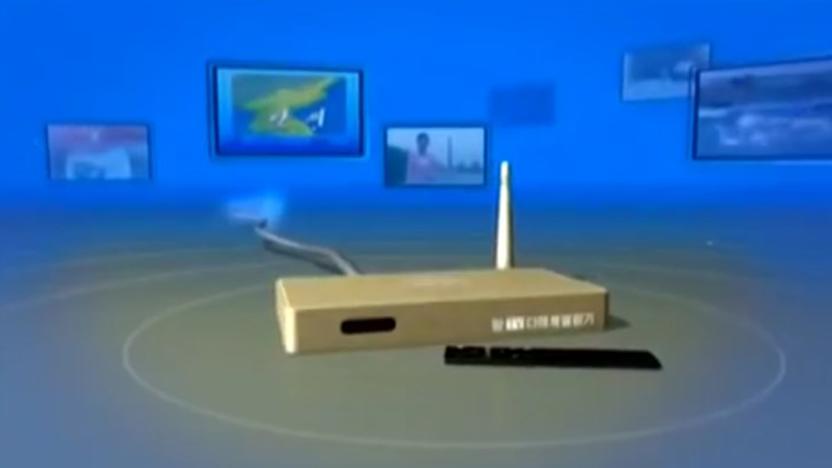
North Korea's 'Manbang' is a state-approved streaming service
You can't watch Netflix in North Korea, but the Democratic People's Republic now has something, at least: Manbang -- a state-approved set-top box that streams live TV, on-demand video content and newspaper articles over the internet. It's a step forward for digital media delivery for North Korea, but it's still fairly limited. Manbang, which ironically translates to "everywhere," is only available to citizens in Pyongynag, Siniju and Sariwon.
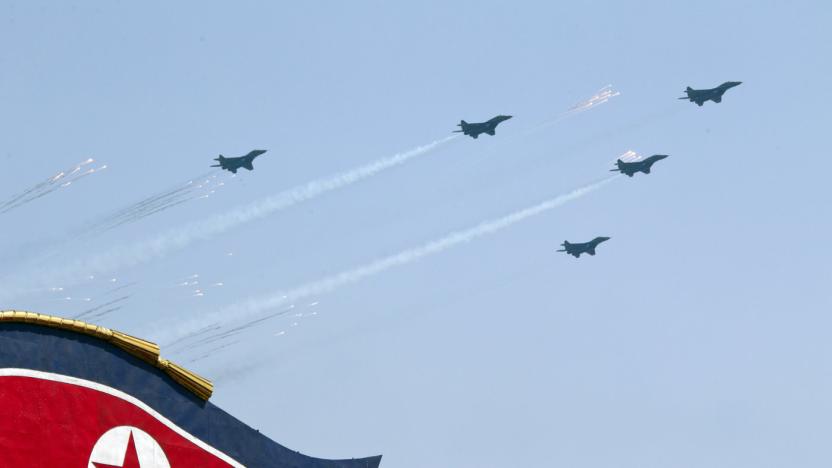
North Korean hackers stole US fighter jet blueprints
As part of a years-long cyber attack, North Korean hackers have allegedly stolen 42,000 materials from South Korean organizations and government agencies, including blueprints for F-15 fighter jet wings. The hacking began in 2014 and was first detected in February, according to South Korea's police cyber investigation unit. Reuters reports that more than 40,000 of the materials stolen were defense-related.

North Korea steps up hacking campaign against the South
North Korea isn't letting up on its hacking campaign any time soon... if anything, it's kicking into high gear. South Korean officials report that the North has been escalating its cyberattacks, including a recent breach that compromised the phones of 40 security officials. The North also unsuccessfully tried to target the South's railway control system by attacking the email accounts of workers. These kinds of attacks were expected between North Korea's nuclear tests, long-range missile tests and joint US/South Korea military exercises, but that's not exactly comforting.
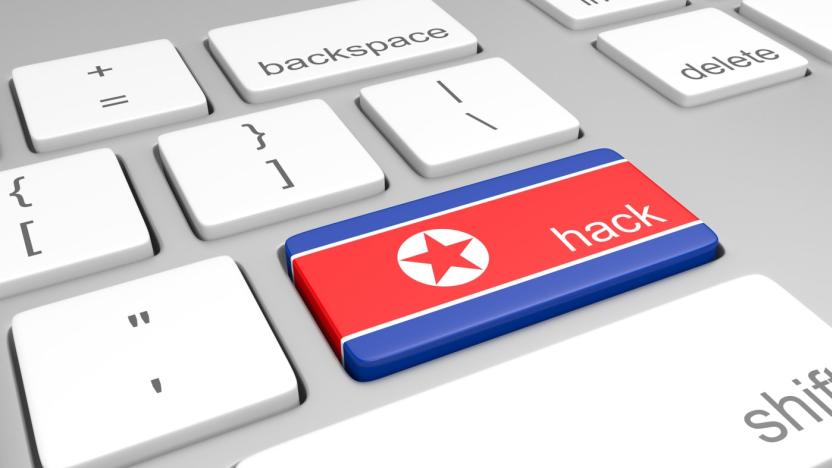
Study links North Korea to Sony hack and malware campaign
Cyber-security firms Kaspersky and Alienvault Labs announced at the Kaspersky Security Analyst Summit that they had uncovered new evidence linking the massive Sony Pictures hack of 2014 with an ongoing malware attack directed at South Korea. The security firms believe that the same group has perpetrated both attacks and, though they did not specify where the attacks were coming from, their evidence does point to the group most likely operating out of North Korea.

North Korea's version of Linux is extremely oppressive
It's no secret that North Korea has its own Linux distribution, Red Star OS, that limits you to a government-approved view of the world. However, researchers have just taken an in-depth look into how Red Star works -- and it's clear that software is as authoritarian as the country that created it. Besides its known tendency to watermark files on USB sticks (to track people shuttling contraband material), Red Star is paranoid about modifications. It not only has extra safeguards around key system files, but will immediately reboot the PC if it detects changes to those files.

Researchers can steer your emails away from hostile nations
You're probably no doubt aware that no packet of data you send on the internet is safe from prying eyes. And because of the way traffic is routed, those packets often take a ride through nations that are keen to observe or even censor that data -- like China, North Korea or yes, the US. However, researchers from the University of Maryland have found a way to go around certain regions when sending data and then provide concrete proof of the feat. The system, called Alibi Routing, uses a technique often used for illegal activities -- peer-to-peer routing.








